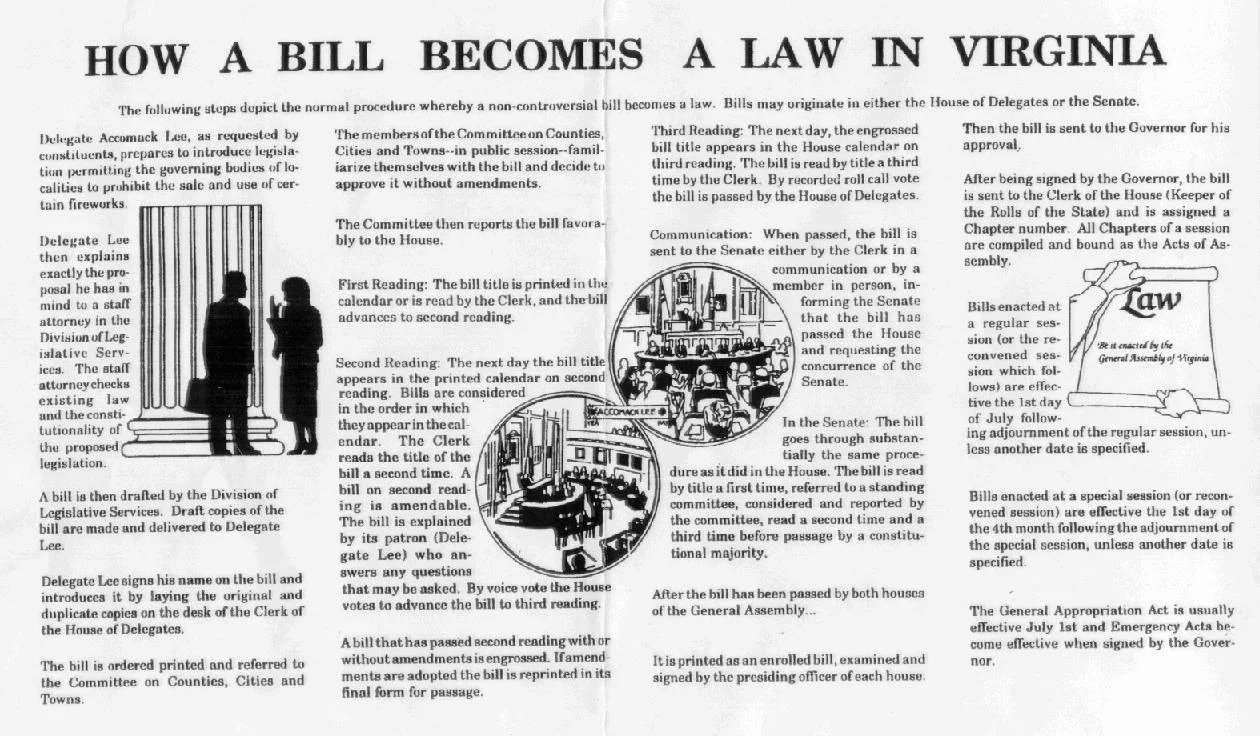2018 Justice Reform Recap: Virginia is Finally Moving Forward
After over a decade of fighting to change two of Virginia’s most arcane laws, advocates found a new audience in the legislature and a new appetite for criminal justice reform in 2018. And with that, significant progress was made as to both of Justice Forward’s 2018 reform priorities -- raising the felony larceny threshold and expanding Virginia’s criminal discovery rules.
With respect to the former, the legislature increased the threshold for determining when a theft charge becomes a felony, from $200 to $500. Although a $500 larceny threshold remains among the lowest in the country -- Justice Forward advocated for a $1500 threshold -- the fact is that the new law will shield thousands of defendants from the risk of a felony conviction, and all of the collateral consequences that go along with one. The change took effect on July 1, 2018.
Regarding criminal discovery, Virginia remains one of only a handful of states with closed discovery rules, meaning defendants have no right to read the police reports from their own cases, to receive witness statements, or learn who will testify against them at trial. In 2017, the Virginia Senate passed a bill which would have dramatically overhauled the rules to compel disclosure of all of those items. That bill was defeated in 2017 by a House subcommittee, then proposed again but tabled in 2018, with the understanding that if the defense bar and prosecutors’ lobby were unable to negotiate a compromise, it would again be proposed in 2019. Thanks to tremendous efforts by several defense leaders, working as a part of a special committee of the Virginia State Bar, a compromise was reached, which was ultimately submitted to the Virginia Supreme Court. Last week, following a public comment period, the Virginia Supreme Court approved the proposal, and announced that the new rules will go into effect in July of 2019.
As with the larceny threshold, the changes to the discovery rules represent more of a middle-ground than a defense wish list. See Proposed Revisions to Rules 3A:11 and 3A:12. For example, although the new rules require the government to provide access to police reports, they do not appear to entitle a defendant to copies of them. This means that the government could ostensibly require defense counsel to manually copy any documents in its possession, regardless of the volume or the time entailed by the copying process. This is already the status quo in a number of Virginia jurisdictions, where prosecutors have been known to use the manual copying requirement to overburden defense attorneys with clerical work, in order to gain leverage in a case.
That said, progress is progress, and like the larceny threshold, the new discovery rules absolutely represent a large first step toward a more fair justice system. These just being first steps, however, we must remain vigilant in our efforts to improve both laws while guarding against the efforts of the prosecutors’ lobby to chip away at them. It should be noted that both the Virginia Supreme Court and the legislature have the power to create and modify rules of criminal procedure, and with the upcoming legislative session just over 4 months away, reformers have no time to be complacent. Justice Forward is as committed as ever to building on our momentum, so stay tuned for opportunities to be involved.


